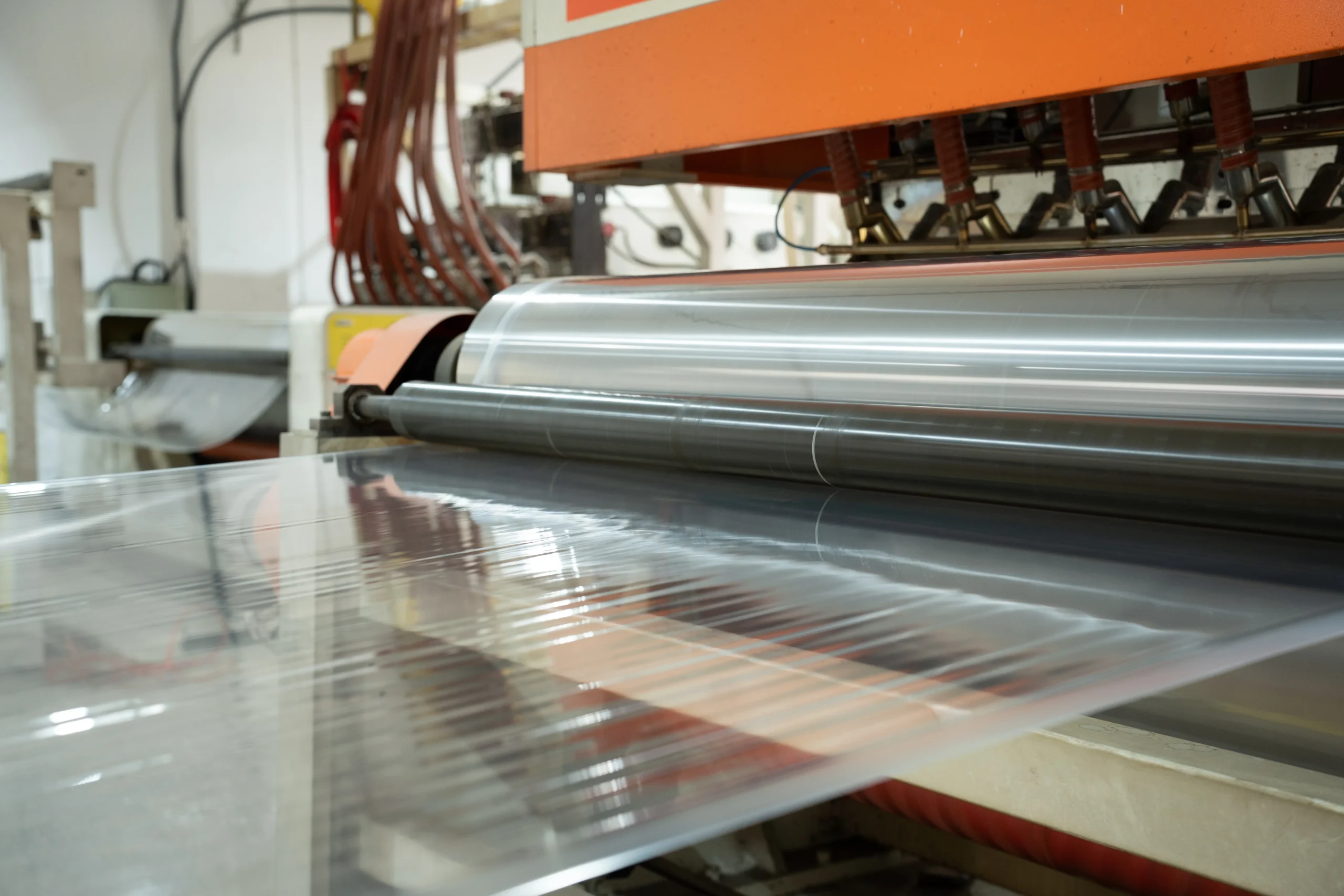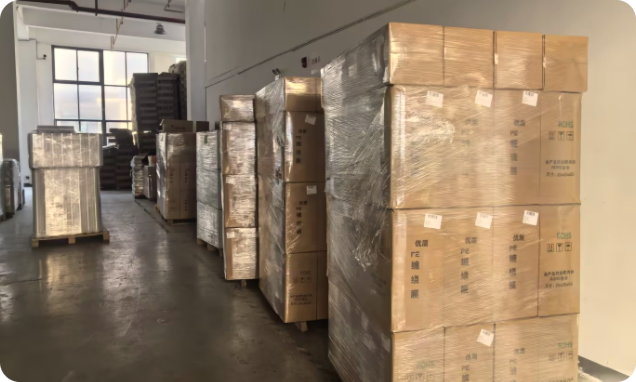PE Stretch Film VS PVC Stretch Film: Material Performance and Environmental Safety Comparison
Release time: 2025-06-04
Industrial-Grade Differences in Material Physical Properties
Stretch Performance
PE Film: Features 300%~800% high stretch ratio with excellent elastic recovery. Pre-stretch technology reduces material usage by 30%~50%, significantly lowering packaging costs.
PVC Film: Stretch ratio limited to 100%~200% with poor elastic recovery. Requires thicker film for equivalent strength, increasing material costs.
Puncture Resistance & Temperature Tolerance
PE Film: LLDPE film material delivers exceptional puncture resistance, suitable for heavy cargo transport. Temperature range: -60°C to 80°C (excellent cold chain compatibility).
PVC Film: Moderate impact resistance; prone to brittle fracture at low temperatures (fails below -10°C), softens above 50°C (for indoor storage only, may delaminate during high-heat summers).
Adhesion & Clarity
PE Film: Features an adjustable adhesive layer that leaves no residue (protects product surfaces) and offers high light transmittance.
PVC Film: Has inherent high tackiness but may leave adhesive residue (especially on aluminum spray-coated surfaces). Its light transmittance is relatively average.
Key Differentiators in Environmental Safety
Environmental Compliance
PE Film: 100% recyclable/re-granulatable, compliant with RoHS/REACH international regulations. No export barriers.
PVC Film: Contains chlorine and plasticizers; releases carcinogenic dioxins during incineration. Strictly regulated under EU CLP legislation
Hygiene & Safety
PE Film:Food-grade plastic, odorless and no risk of additive migration.
PVC Film: May release vinyl chloride monomer (VCM). Requires the use of special plasticizers to meet food-grade standards, posing long-term exposure risks.
Industry Risk Mitigation
PE Film: Aligns with global green supply chain requirements (e.g., Apple/Amazon packaging policies), reducing ESG risks.
PVC Film: Being phased out in EU/US markets (e.g., restricted under Walmart’s “Sustainable Packaging Playbook”).
Industrial Selection
PE Stretch Film:
Boasting exceptional mechanical strength, broad temperature adaptability, and environmental safety, PE stretch film dominates industrial logistics (heavy-duty pallets, cold chain logistics) and export packaging. In recent years, its demand has surged in sectors such as e-commerce, household storage, produce packaging, horticultural grafting, and sealing/leak prevention.
PVC Stretch Film:
PVC stretch film is only recommended for short-term indoor display applications under light loads and must undergo compliance evaluations with environmental regulations.
Data Support:
According to a 2024 Frost & Sullivan report, PE films hold over 80% of the global industrial packaging market share, while PVC’s market share continues to decline.


